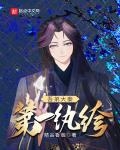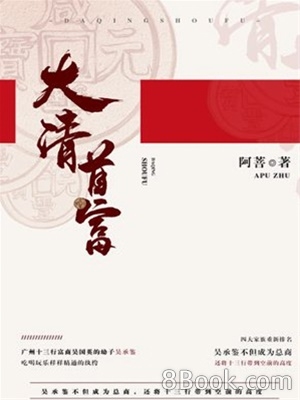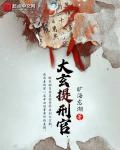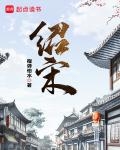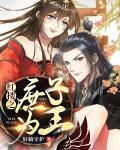Chapter 230: The Manchus and Hans’ North-South Pincer Attack (IV)
Outside the Edo Port, three ships flying the Ming flag approached, surprising the defenders there.
Although surprised, the defenders of Edo Port did not panic like Nagasaki Port. The shogunate was in Edo Castle, and the samurai in charge of the port's security immediately delivered the news to the shogunate.
Hearing that the strange fleet approaching the Edo port was actually flying the Ming flag, the shogunate's magistrates did not dare to act on their own. On the one hand, they sent someone to invite the general's attendant to drink in Yoshiwara tonight, and on the other hand, they sent a ship to contact the fleet flying the Ming flag.
Feng Yukuan was a little scared when he saw several Japanese boats approaching, with Japanese officials standing on them. But the young Mei Qian straightened his clothes and said calmly, "Put down the gangway and take them up!"
Seeing the bravery of the young soldiers in Jinyiwei uniforms, Feng Yukuan looked at his own Jinyiwei uniforms and gained some confidence. Then he thought about it again. The Qing emperor who had millions of troops was also killed. How could a Japanese country challenge the Han regime?
Kinoshita Ichirō, a samurai of the Tokugawa shogunate, climbed up the rope ladder onto the ship flying the Ming flag. When he stood on the deck, he was startled.
The reason for the panic was definitely not that this small fleet was extraordinary. Due to the immature technology, the keels of the three warships in the Han fleet were 15 meters long, and with the bow and stern, the length was only a little over 20 meters. Such a ship was not considered to be of any extraordinary size in Japan, and even if three of them were added together, they would not make people feel any power.
The reason for the fear was that the people in front of them were indeed dressed in a very impressive manner. They were tall, almost a head taller than the Japanese. The wingless black gauze hats on their heads looked solemn. Only Japanese officials were qualified to wear such hats. With such black gauze hats, they looked even taller.
The long gown on this tall figure was not only made of high-quality fabric, but also had a leather belt more than half a foot wide tied around the waist, outlining his heroic figure.
Leather is used to make armor in Japan. Just a leather belt like this is at least a samurai's arm armor in Japan.
Such an exaggerated belt is inlaid with several large pieces of brass to protect the navel. While providing defense, it also looks bright and eye-catching.
Kinoshita looked carefully and could not see that these people had pigtails. They were not Qing people.
Mustering up his courage, he stepped forward and asked, "Excuse me, are you Korean?"
The translator told Mei Qian what was going on, and he yelled, "You asked me that question the first time. Where are your manners?"
Looking up at Mei Qian's angry expression, and listening to the translation, Kinoshita Ichiro became even more uneasy. As the saying goes, " Where is politeness?" If this statement comes from a person of higher status, it may very well lead to the death of the person of lower status. Even if the other party is a foreigner, Kinoshita Ichiro dare not pretend that he didn't hear it. He quickly asked, "Excuse me, are you all Ming people?"
No longer being insulted as Koreans, Mei Qian began to communicate, "Yes. We are the descendants of the Ming Dynasty. We came here because we sailed to Nagasaki, and the people in Nagasaki actually fired at us..."
Kinoshita was shocked to hear this accusation. He never thought that the Nagasaki Bugyo would dare to fire at the Ming fleet. Even if he thought the Ming flag was strange, he should at least send someone on board to ask what it meant to open fire directly.
However, Kinoshita Ichiro did not dare to believe it completely. He could only ask some questions, took Mei Qian's letter, and took his men off the boat.
After returning to Edo, Kinoshita was called directly to Yoshiwara. Yoshiwara was the custom area of Edo in Japan. It should have been a place of singing and dancing, but it had a high wall. There was also a two-room wide trench outside the wall. "Kan" is a Japanese unit of measurement. One room is about 1.8 meters, and two rooms are 3.6 meters.
Of course, ordinary people could not jump this distance, and with the high walls and only a few bridges leading into Yoshiwara, Kinoshita was heading towards the castle.
The moment you walk into the gate of Yoshiwara, you will find yourself in another world. Well-dressed men are coming and going, and there are women in front of every store. Kinoshita Ichiro lowered his head quickly to stop himself from looking at those women. This way he would not be tempted to spend money here.
In the past, if Kinoshita spent money here, it would greatly affect the living standards of his family. In recent years, the income of the shogunate has been getting lower and lower, and the salary payment is not so timely. At this time, if Kinoshita comes here to spend money again, he will face the problem of survival.
They arrived at a building that looked very stylish and must have been expensive. A samurai was already waiting in the lobby downstairs. When Kinoshita came in, someone immediately led Kinoshita upstairs.
The room on the second floor was magnificent, and the geishas inside were dressed very luxuriously, which reminded Kinoshita Ichiro of the attire of the Ming Dynasty personnel on the ship.
I saluted my boss first, and he pointed to the man next to me and said, "This is the general's attendant, the elder."
The so-called attendants are not servants. The attendant elders are responsible for the Shogun's daily life, who he sees and who he doesn't see. They can really influence the Shogun's judgment. If you offend the attendant elders, once they have the opportunity to retaliate, the result can be imagined.
Kinoshitarou quickly knelt down and saluted. He, a small samurai, was like a blade of grass in front of these retainers and elders.
The family elder asked Kinoshita to tell the story . Kinoshita told the adults what he saw and then handed them the letter.
After listening to it, the elder picked up the letter and asked, "I heard that the Ming people on those ships also gave you gifts?"
Kinoshita didn't expect that someone would report such a small matter to the family elder. He was startled and quickly said, "They gave each person a small jar of wine."
Kinoshita's boss gave Kinoshita a signal, and Kinoshita reluctantly took out the bottle of wine he carried with him.
When this thing was placed on the tatami, it attracted the attention of everyone in the room. The geishas in gorgeous costumes were even more shocked, and some even raised their sleeves to cover their mouths to avoid being seen by others.
The wine bottle is a glass bottle. Under the bright candlelight, the transparent green wine casts a green light and shadow on the tatami. For normal people, green drinks are easily associated with poison.
The boss gestured to Kinoshita. Kinoshita knew that he was going to taste the wine himself, and he felt dissatisfied but helpless, but not afraid.
After all, the other party claimed to be from the Ming Dynasty. Since they were from the Ming Dynasty, they would have the least moral principles and would not use poisoned wine to directly harm people. Moreover, tasting the wine would also allow Kinoshita to taste what the gifts sent by others tasted like.
The reason why he was helpless was because Kinoshita knew that he was just a working samurai. In Japan, the harder you work, the lower your status. The lower your status, the lower your income.
To the upper class, people like Kinoshita are nothing but consumables. Even if they asked Kinoshita to taste the wine out of curiosity and not for the purpose of killing Kinoshita, Kinoshita himself could only obey.
In this case, Kinoshita humbly asked: "Can you give me a fish? It would be very rude if I get drunk directly."
The family elder was not angry, and generously asked someone to give Kinoshita a piece of dried fish and a small bowl of rice. Kinoshita hadn't eaten yet, so he started eating. After eating, he pulled out the cork from the wine bottle. With the slight sound of the cork being pulled out, the sharp aroma of wine mixed with the smell of herbs instantly hit his nose. This was a smell that Kinoshita had never experienced before, and just smelling it made him feel a little drunk.
When the wine cup was filled with wine, the faces of the people in the room changed. Even the high-ranking officials of the Tokugawa shogunate had seen almost all the wines in Japan, but they had never tasted such a strong wine.
Kinoshita picked up the wine cup and drank it all in one gulp with the determination to die. He felt something like a line of fire rushing from his mouth to his internal organs. The hot feeling did not stay in his stomach for too long, and then spread to his whole body. Kinoshita could not help but shiver, and felt his body quickly warm up.
After that, Kinoshita fell into an indescribable feeling. In the past, drinking would make Kinoshita feel excited. This time, the feeling changed to intoxication. Everything around him became a little blurry, and he could no longer hear what the adults were saying.
It was only when the adults' attendants came to Kinoshita and asked him to drink another cup that Kinoshita understood. After another cup, Kinoshita could no longer control himself. When his body fell forward, Kinoshita was still somewhat conscious. After that, he could not feel anything.
When Kinoshita woke up, he looked up and saw the bright sunlight outside the window. He sat up and felt extremely relaxed. When he walked out the door, he saw the sun hanging overhead. It was noon.
There is still official business! Kinoshita remembered immediately. He went back and quickly put on his clothes, and without caring about anything else, he hurried all the way to the Imperial Palace. When he arrived at the Imperial Palace, he saw that his colleagues looked at him with strange eyes. Kinoshita was panicking. He only remembered that he seemed to have lost consciousness. What happened afterwards and how he got home was completely incomprehensible.
Thinking about how he had behaved in front of the retainer and the elder, Kinoshita felt extremely panicked.
Soon, the boss called Kinoshita into the room. He asked about the Ming fleet, and after asking carefully, he took out a picture album and opened one of the pages.
"Sir, this is what they wear." Kinoshita pointed at the portrait in the album and said. After saying that, Kinoshita hesitated a little. The portrait in the album was similar in every way, except that the person in the portrait wore clothes with right lapels, and the belt was obviously much narrower than the belts of the Ming people now. The Ming people now wore double-breasted clothes.
However, this difference does not mean anything special, especially the belt. The wider the belt, the richer the opponent is and the more expensive the equipment is.
As for right-front or double-breasted, from a samurai's perspective, double-breasted may be more suitable for combat.
Before Kinoshita could ask his question, his boss had already closed the album and said, "Those people are from Ming Country."
"Uh..." Kinoshita didn't dare to say anything else.
"They're dressed right. They can also provide two days of drunkenness. They can't be wrong."
"Two days of drunkenness?" Kinoshita was confused by the word.
The boss explained that in the past, Ming and Japan had a strong liquor called Ryorizui in their trade, which was very popular among the wealthy people in Japan.
Seventy years have passed, and there has been no such strong liquor in the seventy years of trade. Since the Ming people used two days of drunkenness as a gift, it means that they must be Ming people. That's right!

